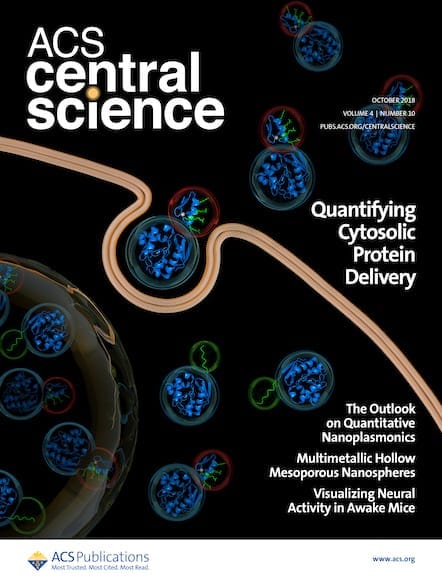The Empowering Women in Organic Chemistry Conference (EWOCC), held August 13-14, was attended by 800 digital participants from every continent outside Antarctica. EWOC is an annual conference that began last year at the University of Pennsylvania that aims to empower all marginalized individuals by promoting equity, justice, diversity, and inclusion across all chemistry fields.

The Empowering Women in Organic Chemistry Conference (EWOCC), held August 13-14, was attended by 800 digital participants from every continent outside Antarctica. EWOC is an annual conference that began last year at the University of Pennsylvania that aims to empower all marginalized individuals by promoting equity, justice, diversity, and inclusion across all chemistry fields.
ACS Participation in EWOCC
The sponsorship comes in follow-up to the joint editorial and Virtual Issue, Celebrating Women in Organic Chemistry, and is part of ACS Publications’ broader diversity and inclusion initiative. The ACS Division of Organic Chemistry and several ACS Publications journals (ACS Central Science, ACS Medicinal Chemistry Letters, Journal of the American Chemical Society, Journal of Medicinal Chemistry, Journal of Organic Chemistry, Organic Letters, Organic Process Research & Development) participated in the event.
In addition to providing monetary support, the journals also hosted a session focused on Diversity and Inclusion on Friday, August 14. The session was held virtually via Zoom, and was attended by nearly 100 participants. The session allowed attendees to listen to ACS’ diversity and inclusion initiatives, ask questions, and provide feedback.
Speaker Presentations
Each session focused on new and emerging trends in organic chemistry and the speakers’ personal experience with marginalization. ACS Central Science Editor-in-Chief Carolyn Bertozzi led the session “New Therapeutic Modalities for Targeted Degradation in the Extracellular Space.” She spoke about her unwelcome experiences as a female chemist at Harvard in the 1970s, as well as activism, such as rioting for HIV treatments with ActOut SF, the Stonewall Riots, and how black, transgender women changed the future for her and many other LQBTQ+ individuals in chemistry. She recommended the book Careers for Chemists: The World Outside the Lab (1997) for standard career advice.
Read about all presentations.
Workshops
After holding poster and networking sessions on Thursday evening, networking sessions ran before the conference officially kicked off.
One of the first sessions, “Be Happier & Know Why,” led by Lara Kallander, Ph.D., equipped participants with the techniques to change their perspective and outlook on life. The session kicked off with a roundtable discussion in which participants stated something that they were grateful for that day. This was followed by practicing active construction responses in pairs via virtual breakout rooms. The session ended with a tip: commit to 3-5 small acts of kindness every day. Why? “The way to be happy is to make others so,” according to Robert Green Ingersoll.
One of the last sessions, “Honing Your Negotiation Skills for Positive Outcomes,” was led by Geraldine Richmond Ph.D., Presidential Chair in Science and Professor of Chemistry, University of Oregon. This session aimed to change the way we think and act when negotiating. The session kicked off with a question: “What do you think you can negotiate in your job or school?” She followed this up with a surprising reveal of all the things that we weren’t aware we could actually change and/or ask for. This was followed by conversation tips, and important reminders, including: knowing your limits & ranges beforehand; remembering your needs are just as important as everyone else’s; using “and” instead of “but.” Also, remember to ask yourself, ‘Do I really want what I’m asking for — and is it reasonable?’ The session then delved into the different negotiation styles. Richmond noted that the “problem-solve/collaborate” approach is the most effective style. She told attendees to always remember to find a mutual benefit to get to “yes.”
